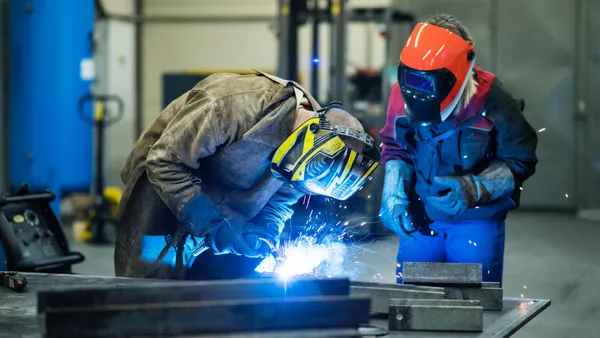Dive Brief:
- Following a recall last month of over 1 million vehicles, Japanese automaker Nissan Motor Co. announced it lacked trained staff to make final inspections at all of its plants in Japan for more than two decades, Reuters reports.
- The company discovered uncertified inspectors were signing off on vehicle checks that were required under government regulations for every car sold in Japan. The practice had been ongoing for decades, with one plant suspected to have conducted the invalid inspections since 1979. The recall alone will cost the company over $200 million (25 billion yen), and CEO Hiroto Saikawa has promised to return a portion of his compensation following the news.
- An overall cut in staffing levels is said to have contributed to the lack of certified inspectors. The company plans to add 85 new inspectors by the end of March, a 20% increase from current levels. As a result of the discovery, production has slowed 40-80%. The slowdown could impact exports as well, according to Reuters.
Dive Insight:
The revelations at Nissan are certainly shocking considering the length of time during which training infractions occurred. But the automaker isn't alone when it comes to poorly trained employees causing accidents and delays — or worse.
The Washington Metropolitan Area Transit Authority, operator of Washington D.C.'s Metrorail subway system, highlighted a lack of employee training and documentation as a possible cause for its poor maintenance records in an internal review. HR disruptor Zenefits was fined in part after regulators discovered employees used software to skip important training protocols. And at Tesla, employees allegedly received insufficient chemicals training.
There are several steps employers can take to prevent such problems. For one, streamlined documentation and mandatory training reporting protocols enforced rigorously by management. Employers are also looking to improve engagement by cross-training for additional coverage as well as making learning programs accessible on-demand. Others are partnering with local institutions and/or developing apprenticeship programs to meet their need for skilled talent.













